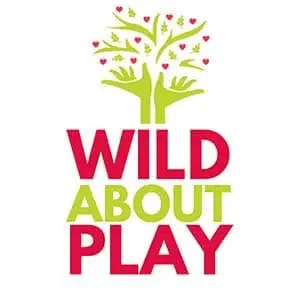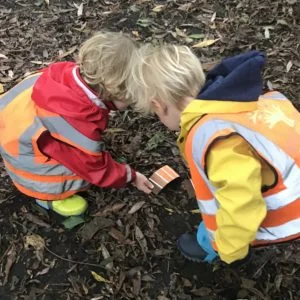Struggling to go and play outdoors in this cold weather? Here are 3 things to think about that will get you running into the outdoors with your family. It’s all about building that wonderful quality we call RESILIENCE.
Here are three reasons why its growth is exponential in the outdoors:
1: Critical thinking flourishes in the outdoors
Yes, it really does! And now there is the science to back it up. In a National Literacy Trust article, it was noted that children “communicate differently with freer, louder ‘outside’ voices and are enthusiastic to share and talk about their discoveries” when learning outside, reflecting on the confidence that is built and can be carried through life. These are the base point qualities needed to promote critical thinking. It is important that children develop their critical thinking skills so they can understand their personal limits and learn how to be independent whilst knowing that it is always okay to ask for help. Research from O’Brien and Murray found there was an increase in children’s self-esteem, self-confidence, ability to work cooperatively and positive attitude to learning due to the forest school experience. When supported by teachers and parents critical thinking can thrive from this stronger basepoint.
2: Empathy and having the time and space for it to develop
Teamwork and collaboration should be cornerstone activities with young children learning how to work together to reach a specific goal. This is so much easier to achieve through proper time in the outdoors. Time that has length and where “flow” can happen easily.
Collaboration and teamwork develop empathy, as children become aware of the need to care for each other and their environment. At WaP we use tools such as open discussions at the end of the day about our favourite activities, timers to promote sharing and activities at our vegetable and herb garden to further develop those neural networks and curate empathy towards each other and the environment around them.
3: Independence supported by uniquely skilled Teachers and Parents
Children show more motivation and the ability to concentrate on activities for longer periods of time with the freedom to curate their own learning. Our fantastic educators provide a multitude of tools that the children can use to design their own learning, similar to the “gardener parenting” outlined by Alison Gopnik in which enabling a child’s uninterrupted exploration in a safe environment is key. The Wall Street Journal article mentions that “research suggests that care and play don’t make you better at doing any one particular thing. Instead, they make you more robust and resilient, better able to deal with the unexpected twists and turns of fate.” The independence garnered from child-led, outdoor learning gives children confidence in both themselves and their learning, which is then adapted as they grow older to be applied in all fields of life.
How we promote these sleeper skills
At Wild about Play, our dynamic educators take every step possible to ensure that childhood “sleeper skills” are developed to their fullest potential within our young explorers. Earlier this year the Wall Street Journal released an article proving that children were “healthier and wealthier” in their adult years, due to the skills instilled at such a young age. Such skills were called “Sleeper Skills” that are developed in preschool and then come out again in later adult years.
Whether it is through climbing rope ladders to test their risk-taking, collaborating as a team to build dens and tents using branches and leaves, or retaining knowledge about the local flora and fauna on our foraging expeditions across our local woods. Our combination of forest school activities and outdoor learning ensures that they are in the best possible position they can grow to be happy, healthy and successful individuals, which is all anyone can ask! Please get in touch with us HERE if you would like to discuss any of the above further – We would love your thoughts.







